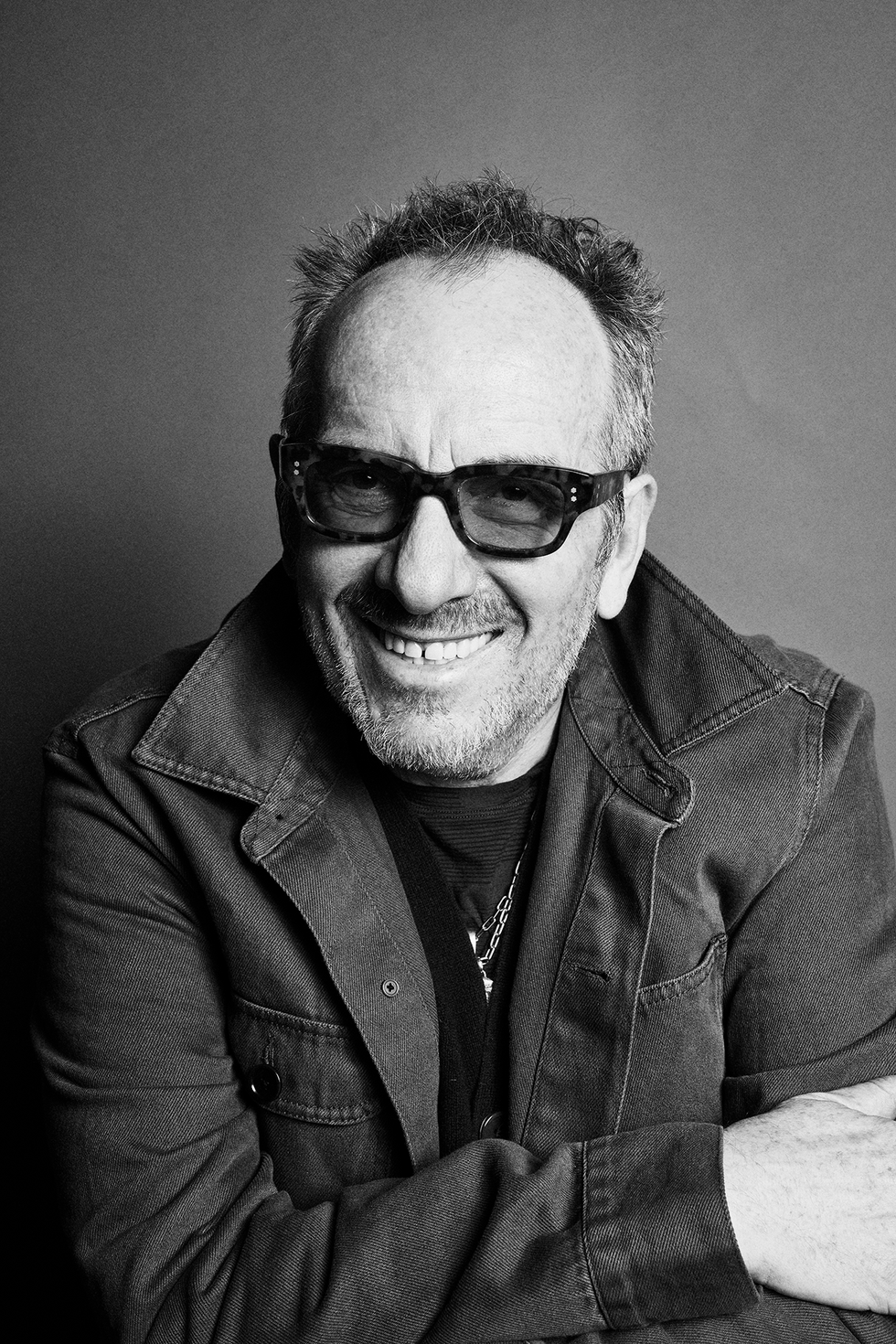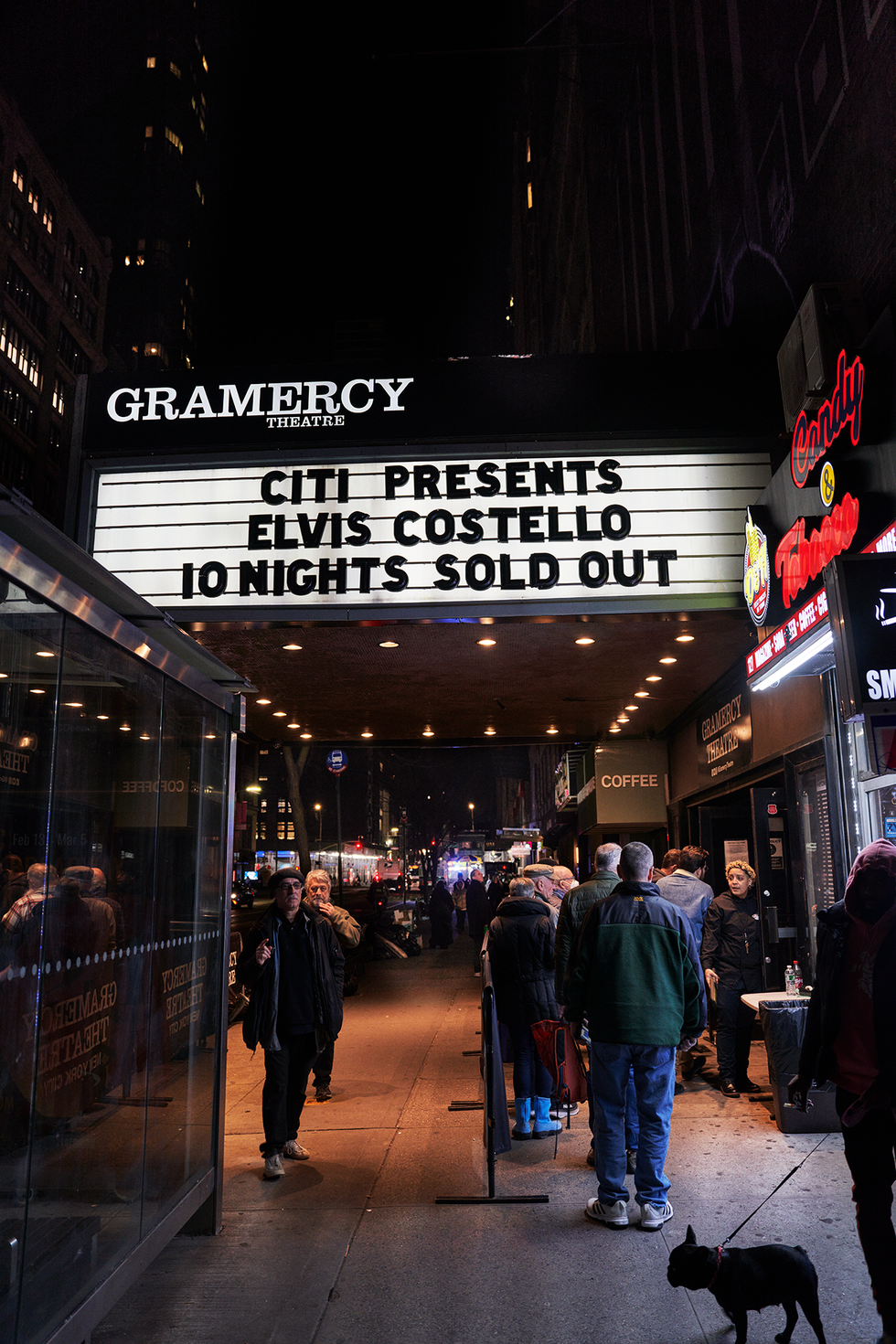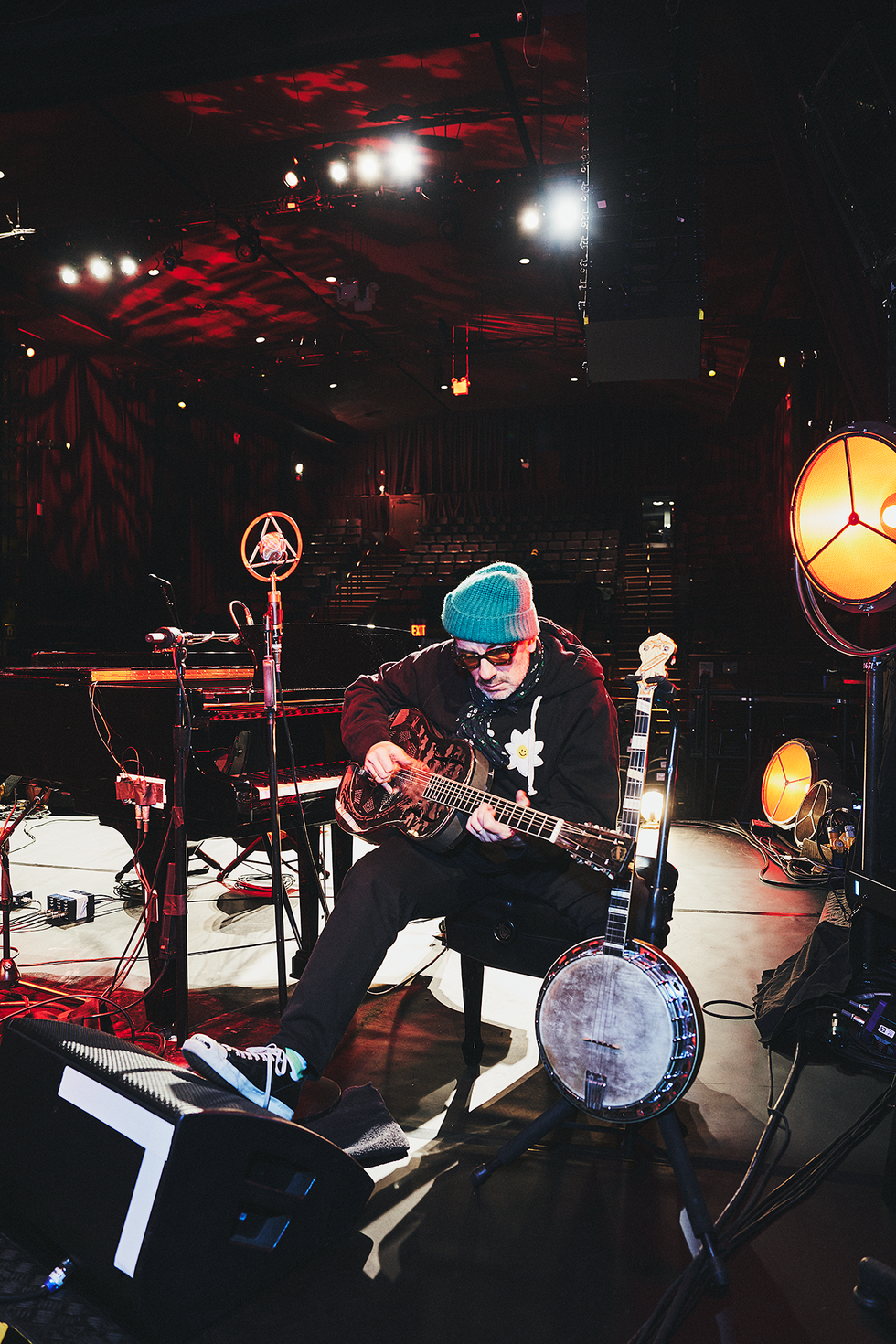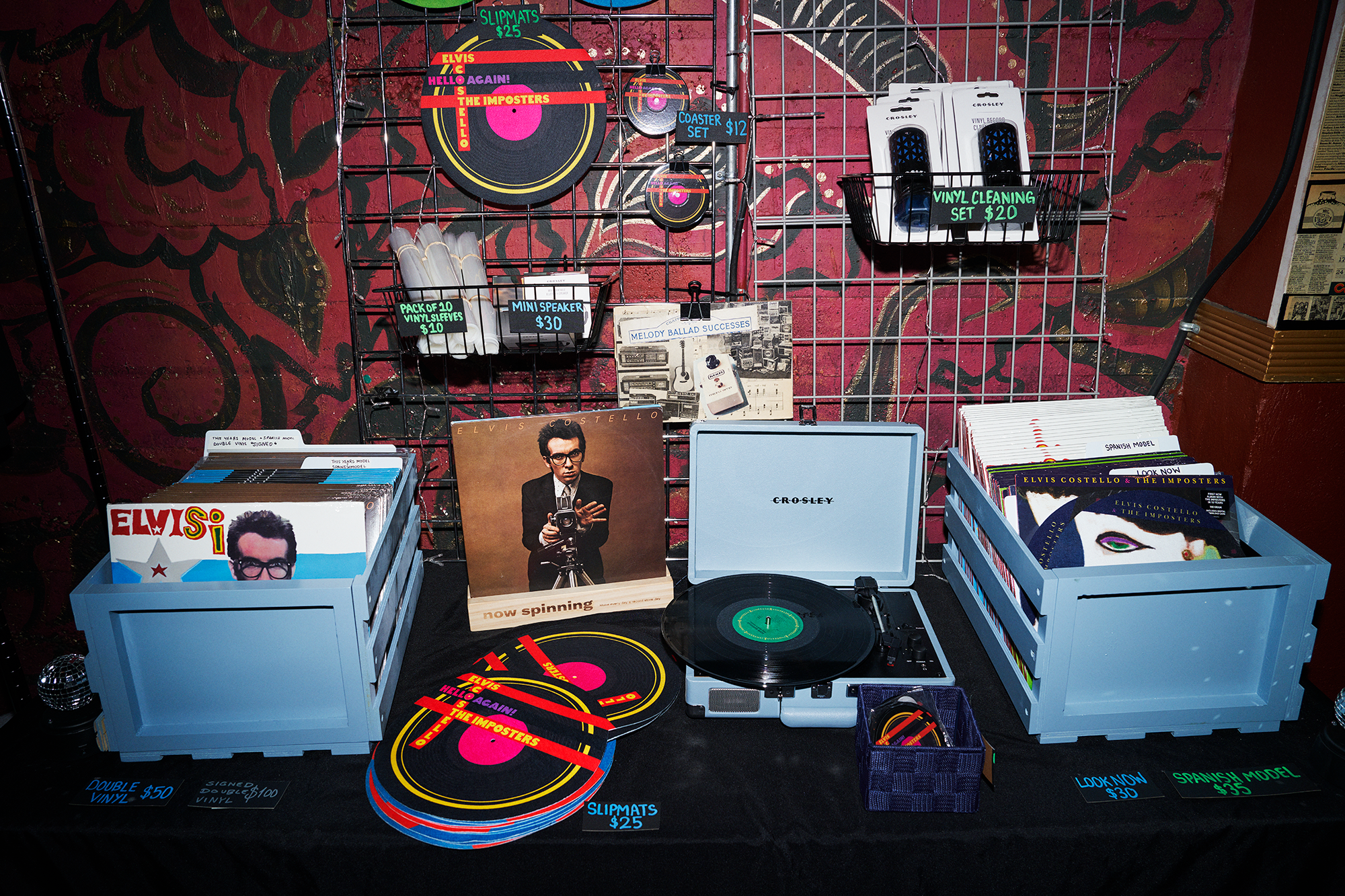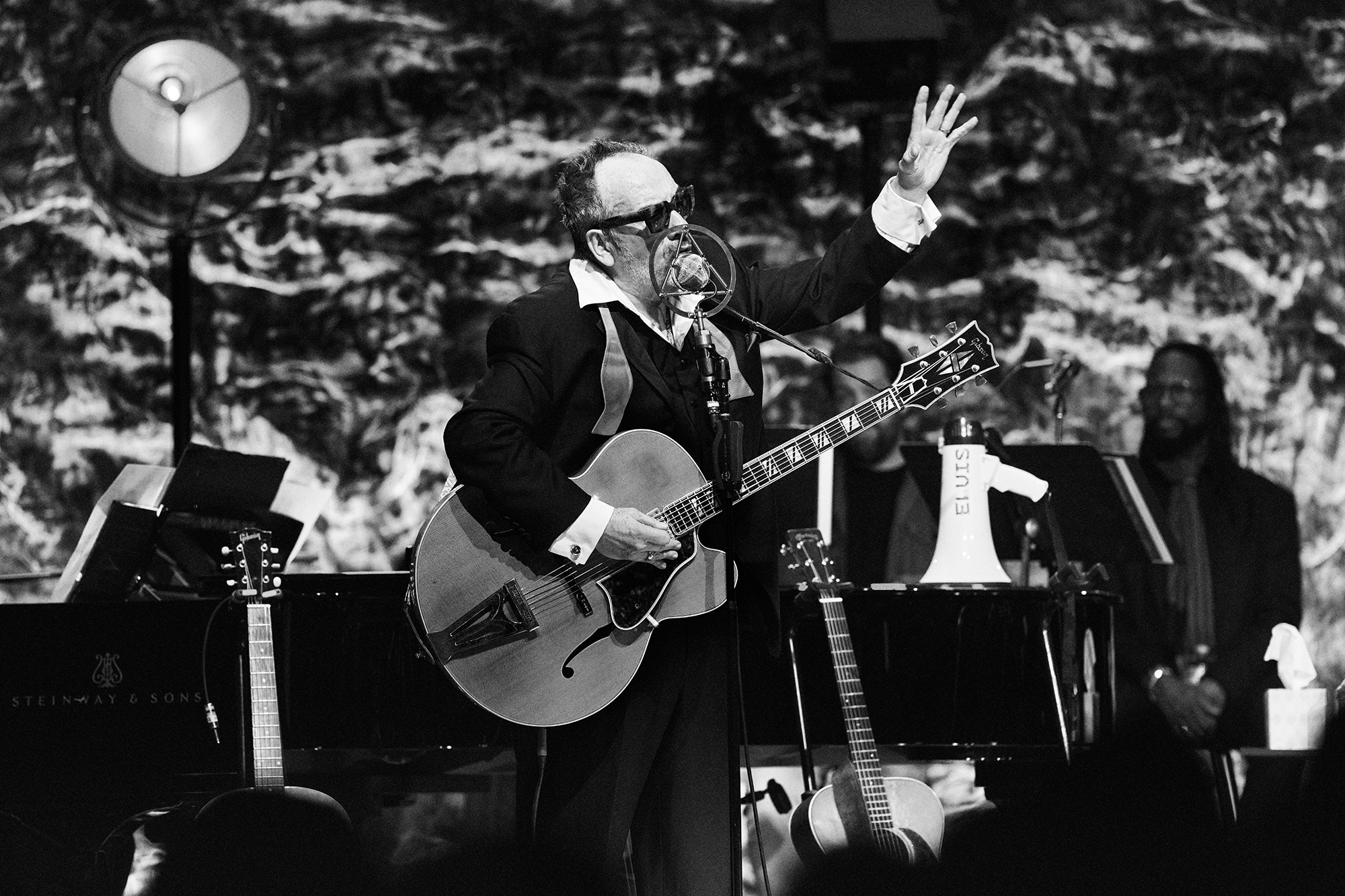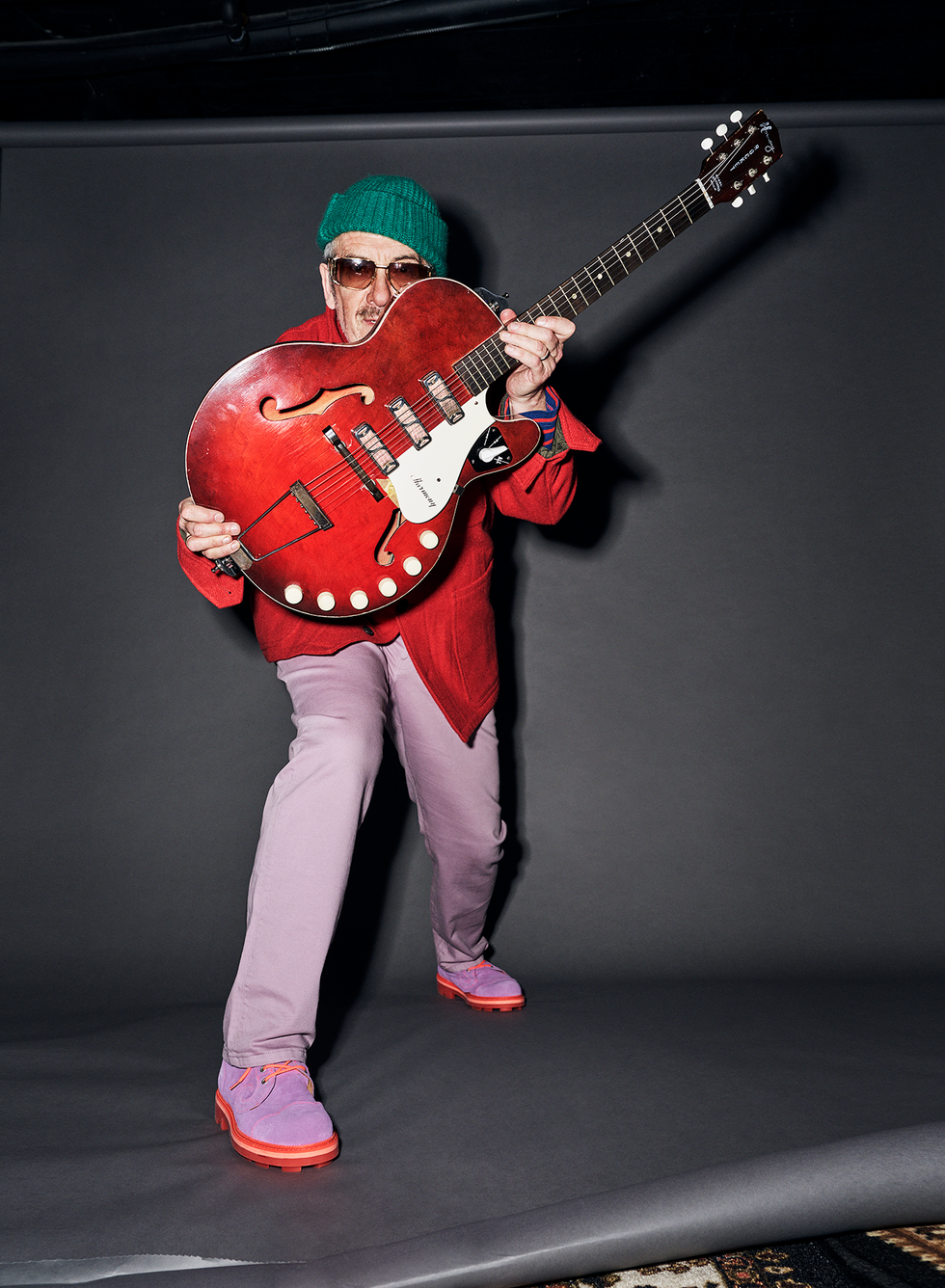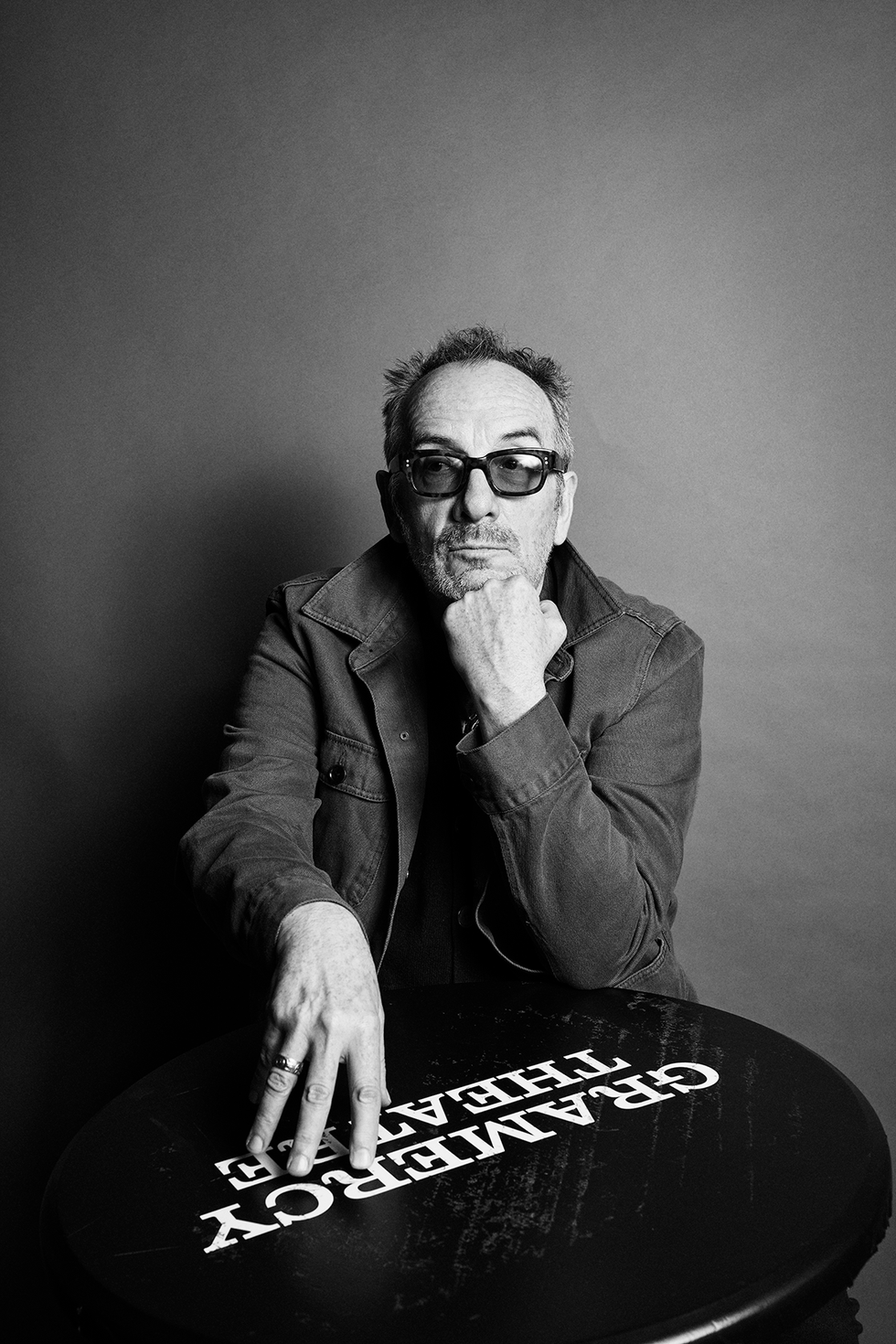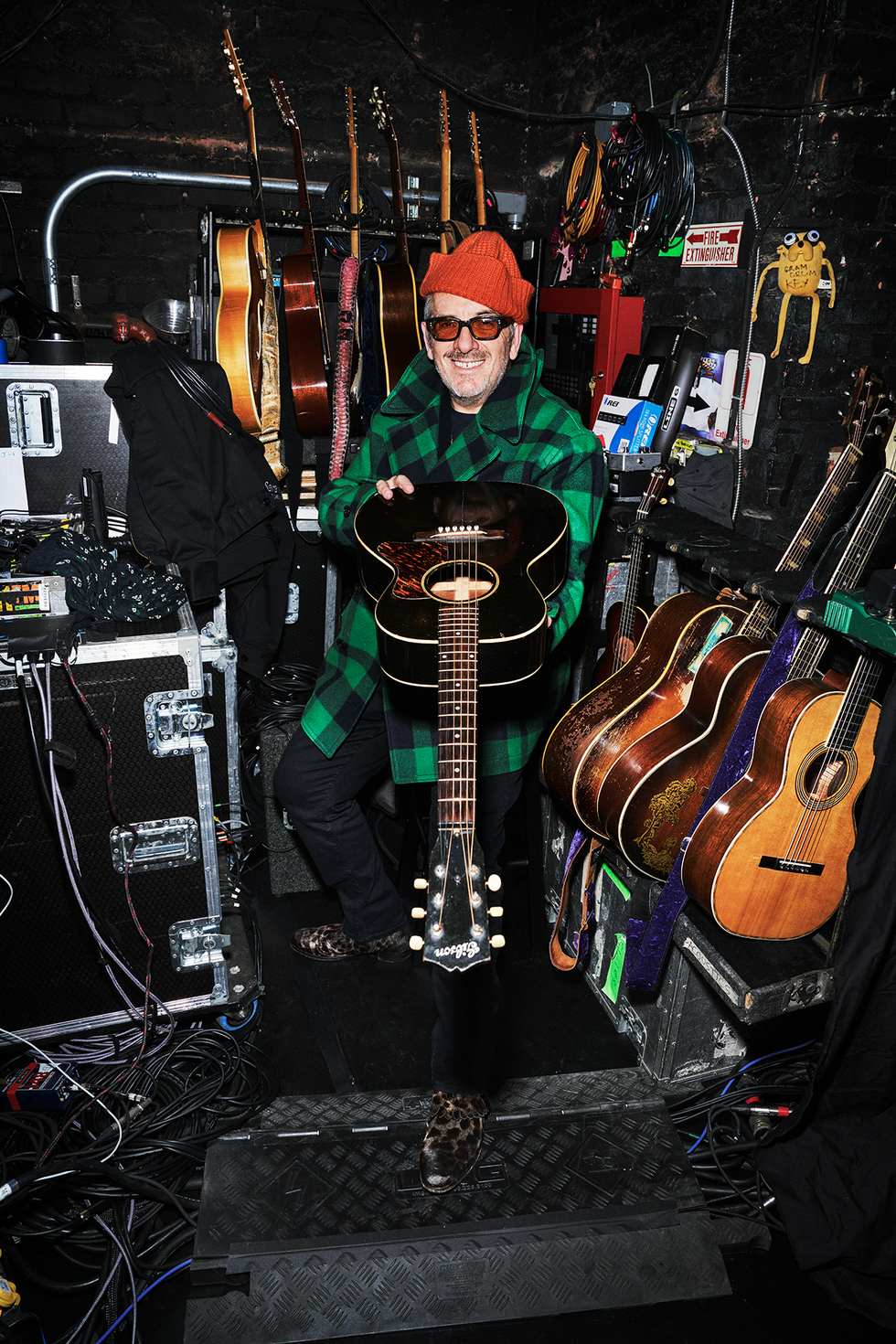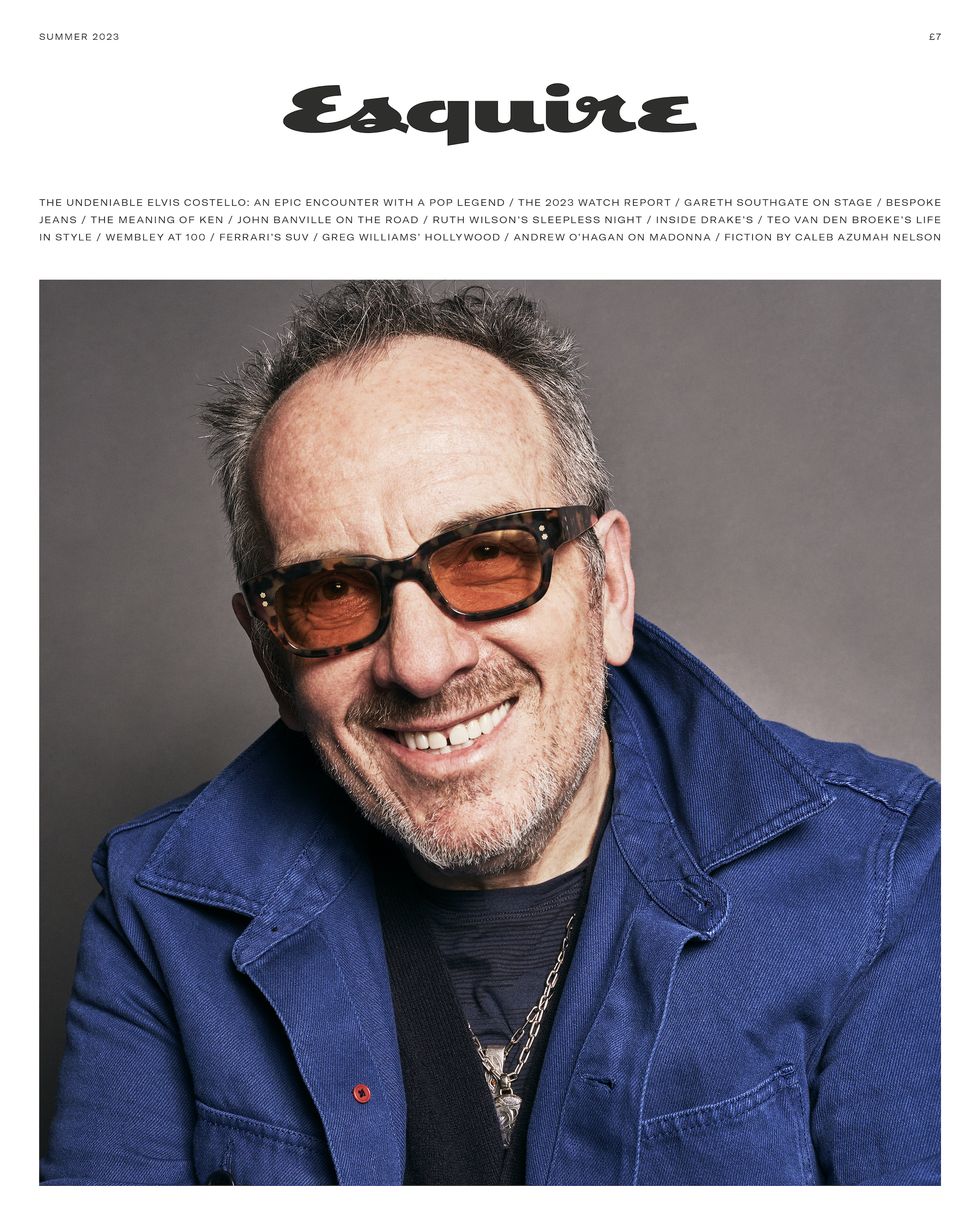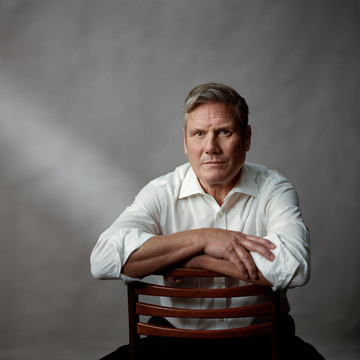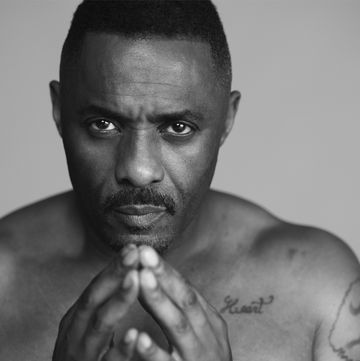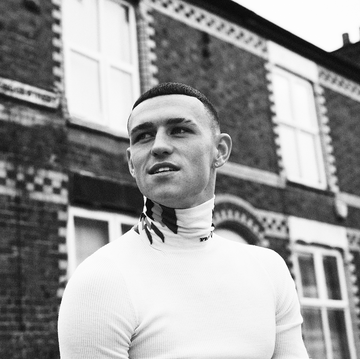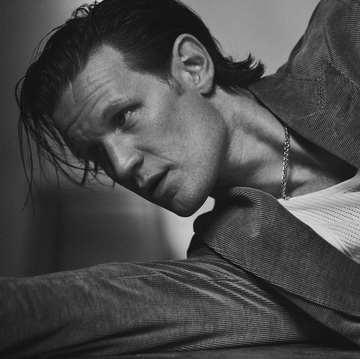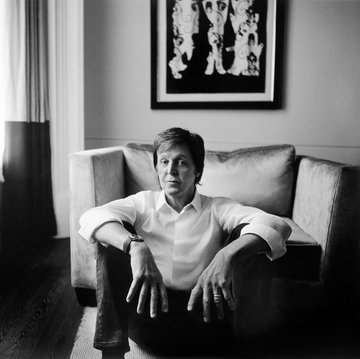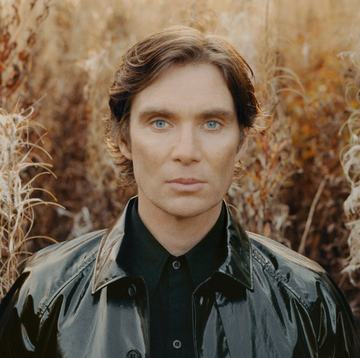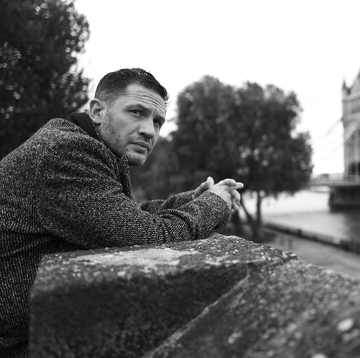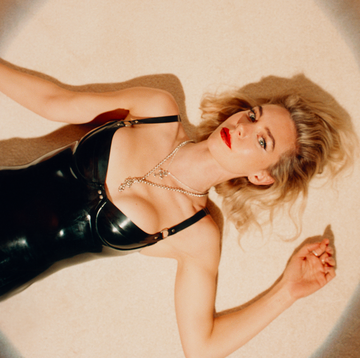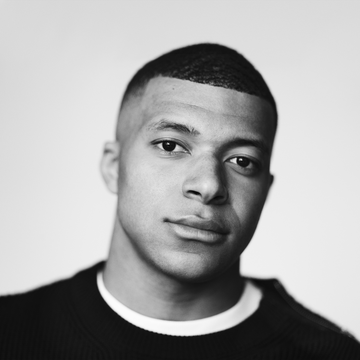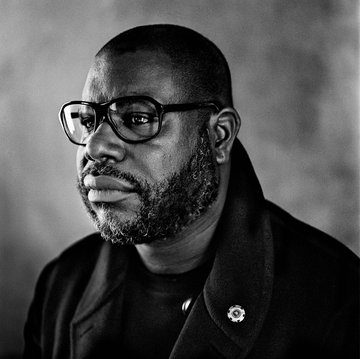In September 2022 I got an email from Elvis Costello. Technically it was from elviscostello.com, a fan subscription list, with news of shows planned for February 2023, but I felt it was sent only with me in mind. Costello was to play 10 nights at the intimate Gramercy Theatre in Manhattan, promising not to repeat a single song in the entire run. This meant at least 200 different songs, perhaps a third of his entire catalogue, stretching back almost 50 years. As far as I knew, no one — not Dylan, not Springsteen, not Schubert — had ever tried a similar thing before.
I’ve followed Costello for his entire recording life, since I was 17 and he was 23, and no other artist has had such a deep or sustained impact on me, or introduced me to such a wide range of music. He was that dreaded thing, a writer’s writer, and beyond his fierce literacy I admired his refusal to stand still (one album was break-up pop, the next Stax, the next country, and we were still only in 1981). Most artists locate their strength (if they’re lucky) and stick to it, but few keep finding new gears for such a long period; David Hockney and David Bowie are the only English comparisons to hand.
Costello has made more than 30 studio albums, and there are very good things on all of them. Of late, his output with The Imposters has unleashed a new urgency, a conscious counter to convention and mediocrity. Equally remarkable is how much of his earliest work retains its icy, witty punch, and little embarrassment. I still think the lines “I don’t know if you’ve been loving somebody/ I only know it isn’t mine” rank among the finest in any song.
So I felt compelled to be in Manhattan for those 10 dates, and entertained hopes of talking to him after every show about the songs he’d just played and his life in general. Costello said he was up for it, but needed to conserve his voice. So we settled on daily emails.
It was a simple routine. Most mornings after a show I would send him a few questions and he would respond at length a few hours later. “Going off-topic is probably my speciality in conversation but I will attempt coherence,” he wrote in his first reply. His emails, like his shows, were vulnerable and considerate, and as wide-ranging as his songbook. What follows is about a quarter of what he sent me. Twice he apologised for the magnitude of his answers, and when I met him after the final night he offered to edit them. (I’ve changed the tense and phrasing of some of my original questions to clarify the context and improve the conversational style of this piece.)
From talking to friends I realised that some didn’t share my enthusiasm; one night at the Gramercy would have been too much. It was clear from the hairlines and waistlines of the audience that most of his fans had been with him for years, if not since the beginning. (Hairlines and waistlines — that’s how much I was influenced by his early lyrics.)
Before and after each show at the Gramercy I talked to others who had committed to all 10 shows, and most had wishlists. “Night One I got ‘Imagination (is a Powerful Deceiver)’ — I was thrilled,” Charles Martin, who had flown in from Alaska, told me. “Night Two I got ‘Sleep of the Just’. Night Six was the insane night as I got four of my top 20.” Even the diehards admitted that there were some phases of Costello’s career that had left them wondering. After collaborating with an opera singer, a classical quartet, a rap group, a Beatle and the composer of “Say a Little Prayer”, Costello had been working for years on a Broadway musical about the rise and fall of an American demagogue in the 1950s. At the Gramercy we had glimpses of all these projects, but mostly we heard a personal songbook unmatched in its pointed vision and singular voice.
SG: So it’s something approximating a 20-hour concert with time off at various points for sleep and food…
EC: I’ve thought about this show for 20 years or more. To take songs apart and put them back together — “before your very eyes” as the vaudeville magicians used to say — or to pull a song or two out of the shadows. The singers I loved in the early/mid-1970s had intimate voices and in concert could hypnotise an audience. I learned the hard way that one could not count on commanding attention at low volume, you had to earn it. So I like it if people have to occasionally sit forward a little in the chair to catch what’s going on. The Gramercy Theatre seems about the right size room for this adventure [it seats about 500]. Any place that has hosted Houdini or The Marx Brothers, Laurel & Hardy or Sid James is fine by me. [Costello took the stage each night just after the PA played the theme from The Benny Hill Show.]
It is an extraordinary thing to imagine that people would sign up for 10 nights of misery. Seriously, I have to be grateful for so much curiosity. They’re the ones that have heard my jokes before, but whoever it is out there is very welcome, especially if they are willing to let me flow or fly and fail.
I think I gave plenty of notice that I would not be playing all my “hits”. That’s easy, because I really don’t have very many in numerical, chart terms. What might have once been a disappointment in a moment is actually a liberty in the long run. I’m not selling a brand or a product description. Being a songwriting performer over 45 to 50 years requires a variety of skills, guile and a lot of luck, but it also shares something with the life of the professional gambler. Living on the wits but with no verifiable professional credentials means that you never bet more than your stake.
SG: There was a shadow over the first night — the death the day before of your friend Burt Bacharach.
EC: At any other time, I might have responded to Burt’s passing by putting pen to paper. The most valuable advice I have ever received was given to me by my mother, Lillian. She taught me to write down what I could not bear to say, and it has served me well. Once I could see it on the page, I could say or even sing it.
When the call came at midnight, on the eve of the show, I knew it was not my place to tell anyone, other than Diana [Costello’s wife, jazz pianist and singer Diana Krall], until a press statement was released. By 10am, friends were writing to express their sadness. Television
reports and long-filed or hurriedly written obituaries are always shocking to view or see in print when they speak of someone so dear to you. Even the superlatives or a mere catalogue of achievements serve poorly or seem reductive. Clichés and platitudes simply irritate and seem unworthy of the writers.
SG: One of the oldest songs on the first night was “Poison Moon”, a reflective fingerpicking tale about a young person confronting the realities of life: “If home is anywhere that I can hang my hat/ Then it’s coming apart at the seams”. You played it sitting down, guitar close to voice, folk-singer style.
EC: That is the way I heard those songs first, most of them written in the dead of night with my son sleeping in the next room [his son Matthew MacManus, from his first marriage, now approaching his fifties]. I realise now that “Poison Moon” was me trying to work that “Penny Lane” trick of using modest but magical language to address the humdrum. When I first heard my demo tape of that song on Charlie Gillett’s BBC Radio London show, I thought it might be the start of something, but then people like Joe Strummer were picking up the pace and the volume and I knew I had to speak up for myself.
SG: Although early favourites “(The Angels Wanna Wear my) Red Shoes” and “Alison” were only promised once in the run, they’re fixtures in the regular live set. Given a predilection for new adventures, I wonder how the old songs are kept free from mould and damp.
EC: I arrive at those songs from the company they keep. If they were part of a routine script they might go dead in my hands or worse still in the air. “Red Shoes” has two elements: in one reading it is simply what the Americans call a “Kissov” (which was the name of the Soviet premier in Dr Strangelove). Curiously enough, it is also a song about mortality that I wrote at 22, but then that subject had been on my mind since I was eight years old. Now that it’s closer to the end than the beginning, it is bound to be vivid or even tender, if I can find it.
As for “Alison”, once a song becomes well known, your responsibility to yourself and the audience is to still sing the song and not have the song sing you.
SG: “Oliver’s Army” was “retired” to avoid repetition of the phrase “white nigger”. At the Gramercy you told the audience, “The words I chose to express myself when I was 23/24 are not the ones I would choose now.” Then we heard a new version, stripped down like a rifle.
EC: In the 1970s you’d see Belfast on the nightly news. Seeing it with my own eyes — young lads in uniform, barely out of school, armed patrol on the streets of the supposed United Kingdom — made me want to sing about it in a surreal and unsentimental way. When I was 24, I wanted it all to seem shocking, like a world turned upside down, including the passing details that British Army soldiers of Irish blood, like my grandfather, were spoken about in that way, just another part of the dehumanising
process to divide and conquer.
Over time it became easy to understand people’s indignation if they stumbled on the hearsay about this old lyric, especially when detached from any context or history, but neither do I need to discuss this with the self-righteous who will never be touched by any of it (or any Daily Telegraph readers). We must change our minds if we want to change anything, or the past becomes paralysis. So long as we still send young men and women to do our dirty work for us, there will probably be songs to sing about it.
[I asked Costello about a particular line in the new version, and he sent over the entire verse, sung after the first chorus.]The times are changing and peace on
earth has come to pass
Although a war is raging, they say each
war will be the last
They’ll send you overseas to the lands
we plundered
Til you came back home and found
yourself outnumbered
Gun-running with illegal tender
Sing a “Soldier’s Song” or scream
“No Surrender”
One man’s freedom is another one’s terror
The red badge of courage or the coward’s
white feather
Another statistic in the margin for error
One more widow, another pallbearer
Nobody else gets to say how or where this song goes for the price of purchase. Folk songs go through many versions in time and trouble. I feel the same way about many of these tragedies as I ever did but I’m saying this differently, using words that don’t drown out their companions. Now let’s have no more about it. There’s a war going on, don’t you know...
SG: But we do have more about it, on another night, in a different era. The song “Red Cotton”, about the slave trade and its abolition, begins at the Liverpool docks.
EC: There is always the next horror, the next monster around the corner, and you have to be aware of those hidden details, the arrogant line demanded of cartographers by politicians making secret deals and erasing unmarked graves. Songs are a tiny part of this process, persuading the heart or offering consolation. They don’t make foreign policy. Old folk songs used to speak of hard times and pitiful circumstances without asking for mere pity. Changing things for the better turns out to be harder work than just putting a song in the hit parade.
The problem with simple, date-stamped slogan-songs is that they function like a righteous banner in a moment of fervent protest. After it’s over and they clear the streets, some people will work every day to do the relentless, unglamorous work that slowly makes things better, and other people’s arms get tired and they go home and become university lecturers or Sunday-supplement editors or even start to see the world in exactly the reverse perspective as the fear rises and time runs out.
The truth is we need both elements: a temporary shock written on a wall or in the verse of a song, and the somewhat harder and sometimes thankless but loving work of change. I have to laugh when politicians or commentators pontificate about songwriters abusing the privilege of a gold-plated soapbox, when they are the ones who applaud as we pull triggers from a safe distance and bang on about “the labour market” as if people were just so many turnips. They don’t know the meaning of the word “shame”.
SG: Some of the Gramercy shows are performed solo, some with your long-term keyboard player Steve Nieve, and several with a changing roster of guests — double-bassist Endea Owens, a brass section led by Michael Leonhart, rapper JSWISS, Los Angeles singer Marisol Hernandez, and a Broadway troupe performing songs from your musical-in-progress A Face in the Crowd. The last two nights featured The Imposters — Nieve, drummer Pete Thomas (like Nieve, formerly of The Attractions), bassist Davey Faragher and guest guitarist Charlie Sexton, once of Bob Dylan’s band. The rolling line-up adds a sense of vaudeville to the run, a mood that dovetails nicely with your inclination to discuss family history.
EC: About 30 years ago, in the absence of urgent record company demands for more releases, I took up the family showman mantle and decided to be my own impresario. I don’t know what that means, but I’ve always liked the word.
I was writing my book Unfaithful Music & Disappearing Ink when my father [Ross MacManus] first received his Parkinson’s diagnosis. Those last three tough years gave an urgency to our conversations, while he could still perceive a world and time on which a door was closing. As you probably know, those processes often allow the more distant past to be vivid while last week is a mystery.
Shortly before he became ill, he had visited New York to see his new grandsons and I took him to Village Vanguard one night. [Costello and Krall have teenage twin boys.] I think it was like a dream he once had. I had never asked him prior to that if he had ever regretted putting aside any personal artistic agenda — in his case, to be Birkenhead’s first, if not only, Be-Bop trumpet player — in order to take a job as a vocalist with The Joe Loss Orchestra, providing for his family while singing whatever came his way from the hit parade to play for dancers at the Hammersmith Palais.
He wrote only a few songs and his recording career was mostly cover versions — my favourite being “The Long and Winding Road” in Italian. But in the late 1960s, he underwent a radical change of both heart and appearance. I don’t think Danny Boyle realises that the opening credits of the recent Pistol drama features a fragment of archive footage of decadent hippies soon to be swept away by Malcolm and those scamps. Unfortunately, the footage was of my 43-year-old father, dressed in a pale-blue, belted Indian embroidered shirt with long hair and beads, who, along with my half-brother’s mother, Sara, resplendent in a paisley catsuit, look like they are on their way to a Sonny & Cher look-a-like contest.
[Down in London, Costello’s mother Lillian] had talked her way into a good job in the music department at Selfridges, and her manager was more concerned with selling pianos and thought records were a passing fad. It was there that she nearly had a bounce-up with Orson Welles. He was in London for a role in a dreadful piece of hokum called The Black Rose and he came into the store, took a shine to a Pye Black Box portable record player and demanded to buy it. Unfortunately, it was only an early prototype — one of those In The Future We’ll Have All These Labour-saving Devices displays — and it was not for sale.
“No” was apparently not a word in Orson’s dictionary and he started shouting. Loudly. Despite his many travels, I doubt Orson Welles had ever been to Liverpool 8 and obviously didn’t reckon with a 24-year-old woman who would stand her ground and go toe-to-toe with him until the management had to hustle the actor out of harm’s way.
SG: You use a lot of kit up there on stage: many acoustic and electric guitars, grand piano, tenor banjo, a soundboard with pre-recorded samples, a 1960s Ace Tone drum machine, and several microphones chosen for both clarity and haze.
EC: I have been known to take four wires off a six-string guitar in a single swipe but, by choice, I would have been a more controlled fingerpicking acoustic guitar player had I been able to grow stronger nails or conjure with metal picks on each digit. I never went in much for the usual pop-star vanities of sports cars or jewellery, but did spend my money on some beautiful instruments, if I can only play quietly enough for their voices to really be heard. I have always argued that they took me some of the way to the sound I imagined, while a more accomplished player could get what they wanted out of any junk-shop instrument. [Costello celebrated the end of the Gramercy run by purchasing a vintage Gretsch from 30th Street Guitars.]
Truthfully, I am fortunate to be playing at all. I have the inherited condition Dupuytren’s Contracture, which caused my father to put down the trumpet, as he had it in both hands and was unwilling to undergo surgery to correct his curling fingers. I’m fortunate to have
befriended Dr Alton Barron, who has fixed my hand three times. I tell people my left palm contains duelling scars but I avoid fortune tellers.
SG: In 2018 a routine check-up detected a malignancy requiring surgery.
EC: I prefer not to discuss this. It might seem like a technicality, but I never “had cancer” as such. In the same period I lost three very close friends to pancreatic cancer and another to cervical cancer. Just recently, another very dear friend — and wife of a close colleague — passed away after enduring countless operations and cancer treatments and, out of respect and love for them, I simply refuse to count myself in their number.
SG: You once told me, in less humble days, that Goodbye Cruel World was the only bad record you had ever made, “and most artists would be proud of producing anything that good…”
EC: Well, that sounds like huckster, pitch-man talk to me. To do this job you divide yourself into an unholy trinity. One is the showman (or show-off), who says printable, even scandalous things with a pinch of bluff and dare. The second needs to be a charlatan, because even when they are cheering you to the echo, there is always someone at the back thinking, “Who let that idiot on the stage, I always thought he was overrated.” But I’m ahead of you, mate, I already think that too. Finally, there is something you shouldn’t always reveal, like your heart’s desire, our worst fears or what we imagine to be our soul.
The appetite for explanation has become so much more voracious since the days when pop groups were asked whether they liked steak more than ice-cream. It’s tempting to think that some acts took more time on the manifesto than the music.
SG: “Pump It Up” appeared on the last night, an inevitable barnstormer. In his book The Philosophy of Modern Song, Bob Dylan wrote of how its rhyming scheme preceded anything from Jay Z. He believed “Costello and the Attractions were a better band than any of their contemporaries. Light years better… In time Elvis would prove he had a gigantic musical soul. Too big for this type of aggressive music to contain. He went all over the place and it was hard for an audience to get a fix on him… Elvis blows through all kinds of genres like they are not even there.”
EC: We could obviously play a conventional groove as good as anyone, but some of our best records have a “rhythm section” of my voice connected to Pete’s drums, while Bruce [Thomas, the Attractions bassist] is playing cello melodies up the neck of his instrument and Steve was painting the Sistine Chapel upside down and back to front [in another email, Costello wrote, “I write the songs and Steve does the decorating”]. Of course, when we needed to, Pete and Bruce could drop into the more familiar bass and drum roles, but that “overlapping wing-back” approach is something that no other band out of London or anywhere else had in quite the same way in 1977.
We made some pretty terrific records together, even if some of us found it hard to get along under the self-inflicted pressure of the glare and blare. All those hours jammed in station wagons, motels, hotels, tour buses and long-haul flights can fray the nerves and your tolerance for your workmates’ foibles. We weren’t teenage friends like John and Paul or Mick and Keith, or members of some old army platoon, we only had the initial successes and my perverse turns of direction and mood to go on. Potions and powders probably heightened some thrills and tension, but they can also deaden the senses and you end up with four different bands playing at once. It had to end.
SG: Receiving your OBE from Prince Charles at Buckingham Palace before the pandemic: I read that your immediate thought was to refuse it, but then historical precedence spoke up…
EC: There was a comic-opera aspect to all of that. Given the content of some of my songs, I thought the award was either a rather magnanimous act or, more likely, was confirmation of my long-held suspicion that no one listens to the words.
Don’t forget that a committee was formed during the First World War to advise George V to change the family name to something less, err, “German sounding”. They initially proposed “Wettin” and “Wipper”, hardly very noble-sounding names, and then settled on Windsor, after the soup and the safari park. We are all in showbusiness, so it’s hard to say who are The Imposters and who are The Pretenders.
At its most extreme, Hollywood and pop music and now the instantaneous systems that influence or broadcast our every passing thought have created empires of grandeur, delusion and affectation that would shame Versailles. By comparison, there was some- thing reassuringly Duck Soup about all those polished boots and breastplates and fraying old-threaded epaulets.
My father played with the Joe Loss Orchestra for the Buckingham Palace Staff Christmas Ball in the early 1960s. I have the printed programme listing all the dances they did: the Foxtrot, the Dashing White Sergeant and the Highland Fling, but I’m almost certain that Ross went in by the Tradesmen’s Entrance. I thought it would be good for a MacManus to walk through the front door, to have a look around the place during this Going Out Of Business Sale they seem to be conducting.
While I was within those walls, I heard the military band playing “Consider Yourself at Home” from Lionel Bart’s Oliver!, so someone there has a sense of humour. After the presentation, I was asked to give an interview to an Irish paper and we discussed the prospects of a Sinn Féin government in either the North or the Republic. That was unexpected.
Then, earlier in the day, a very nice man in uniform — I would assume part of the staff — gave me a personal note written on Buckingham Palace notepaper. He told me that he’d been to many of our shows and was looking forward to the then upcoming Hammersmith Apollo appearance, which turned out to be our last show in London for two years. Then he wrote: “PTO. I’ve taken the liberty of writing a setlist that you might consider.” Pete Thomas wanted to play the whole thing in order and I think we did take a few cues from what you might say was almost a By Royal Appointment show.
No one in our house has ever been a royalist since my grandfather’s generation, and I’m not really sure what they thought about it all after their respective time, recovering from nearly fatal wounds in a military hospital or being a German PoW on a farm in what is now Poland. Perhaps they would have been persuaded that this peculiar institution — even with all the rotten, rotting institutions attached to it that still can’t get the blood out of their clothes — lies and lies and lies inert like bollards to arrest the careening train to mediocrity, if not tyranny.
SG: Diana attended the Gramercy run, missing just a couple of shows to stay home in Manhattan with an unwell son. He recovered fast enough to attend the penultimate show with his 17-year-old brother. It seems appropriate to ask about all their musical preferences.
EC: Diana’s is the voice that I trust and respond to, most of all. This is why we share this life and love. Diana is unstintingly honest about music, but any critique she offers is constructive, never competitive. When our lads were old enough to really react to one of my concerts — after travelling more frequently with Diana during the summer months — one of them said, “Dad, you are 1,000 times louder than Mum.” That is not always intentional. We don’t intend volume to erase or blur the nuances of the playing, especially when you are sharing the stage with someone of Steve Nieve’s gifts. I’m lucky to know two such gifted and complementary piano players.
Now there are nightly parades and contests of singers performing “covers” of songs. To my ear, they cover them with glitter and dirt and their own vanity, but only a tiny proportion of them are truly ‘interpretive artists’ in which their connection with the lyric or the melody is more than mere display, but a true curiosity and their own emotional perspective in the way Sinatra elevated this form of expression.
I don’t like to speak of my sons’ choices or preferences because they are constantly in flux and their lives are their own. I will say that my elder son, Matt, has a knowledge and appreciation of music (and for that matter cinema) that exceeds my own, and it is one of my greatest joys that as an adult he has advised or surprised me with song and album recommendations, some of them records I overlooked that were made before I was born. I suppose there is something in our family that directs this.
I don’t ever recall anyone saying “Turn that noise down!” in our house, but I’m not about to put Dexter and Frank’s current playlist on record, except to say that they are constantly startling us with their choices, both brand new and from deep in the vault. Given all the time we were obliged (and delighted) to spend together over the last few unexpected years, some youthful impatience and cabin fever would be explicable but we all do our utmost not to disgrace ourselves.
SG: What plans are there for a similar stand like this elsewhere? You mentioned a small theatre you had your eye on in London...
EC: When you’ve spent a few recent nights rolling over potholes, you are reminded why a stand or residency in the same town could be a very attractive way to work. That said, I love the older theatres and playing smaller towns around the bigger cities — it suits the season. That’s always been part of my plan since the Get Happy!! tour, when we played at the end of the pier in various seaside towns, in Merthyr rather than Cardiff Top Rank, Tiffany’s [Wakefield] rather than Newcastle City Hall, and the Floral Hall, Southport, rather than Liverpool. If we can find the right venue in any town, where there’s a curiosity about the songbook that stretches beyond a couple of records played on the radio 40 years ago, we’ll try to be there.
In the end, Costello played 250 songs. Many were reinterpretations and most were a revelation; the scope of the project took me back through so many periods of my life. I asked him whether he regarded the stint as a sort of reappraisal, a consideration of his legacy.
EC: I’m probably the least nostalgic person in the room. I don’t know what an adventure like this suggests about the future, but I don’t ponder that place any more than I do the past. The road ahead can’t possibly be as long as that behind us. Pete Thomas is three weeks older than me and I told him when we were approaching our UK retirement age, “OK pal, you’re on ‘Route 66’ now, and you’d better enjoy it, because there are less theme songs up ahead. Just ‘76 Trombones’ and ‘77 Sunset Strip’ and then it is a clear and silent road
until we get to ‘99½ Won’t Do’.”
But any reminiscences should not be taken for a longing to return. Legacy is the last thing on my mind. I know it sounds idiotic, but I wasn’t much more than 30 when people started kindly asking me how I might be regarded by posterity. Posterity, my arse. Posterior more like it. I won’t be here, why the hell should I care? We live now, whenever the songs were written. Onward. ○
